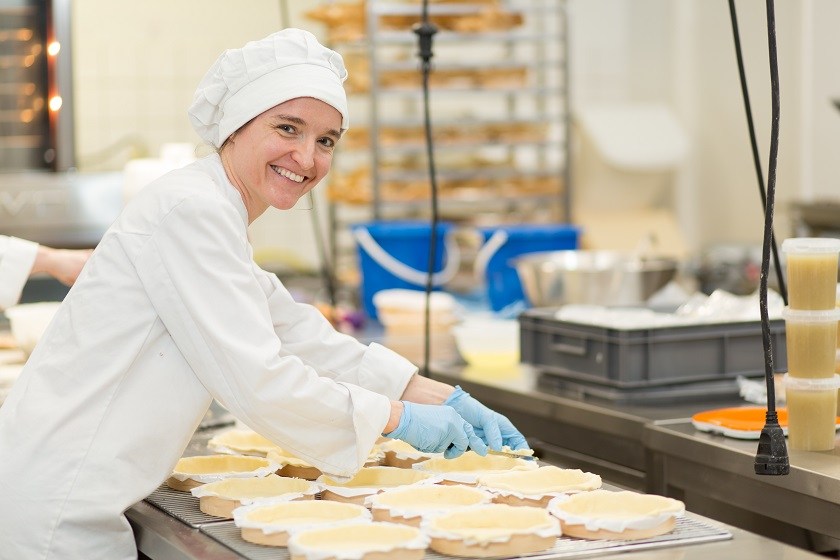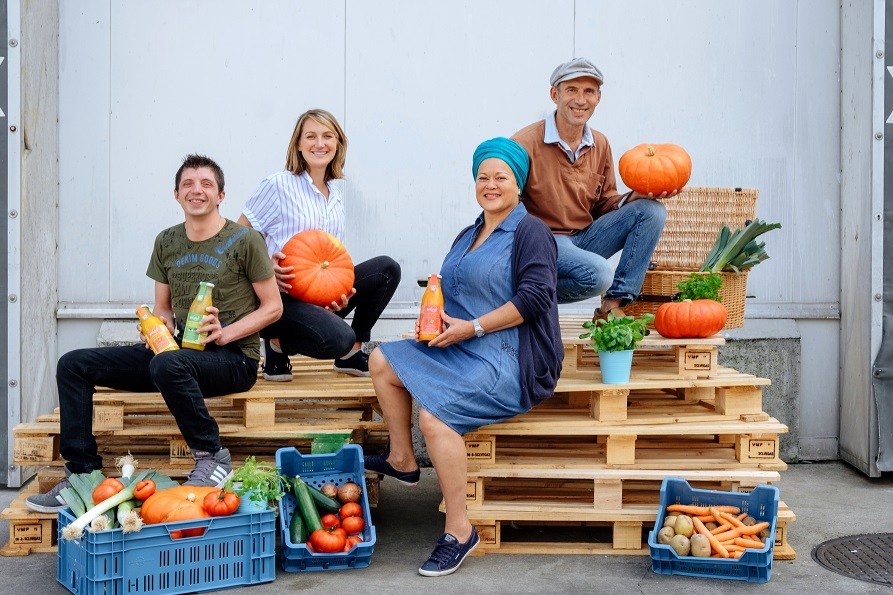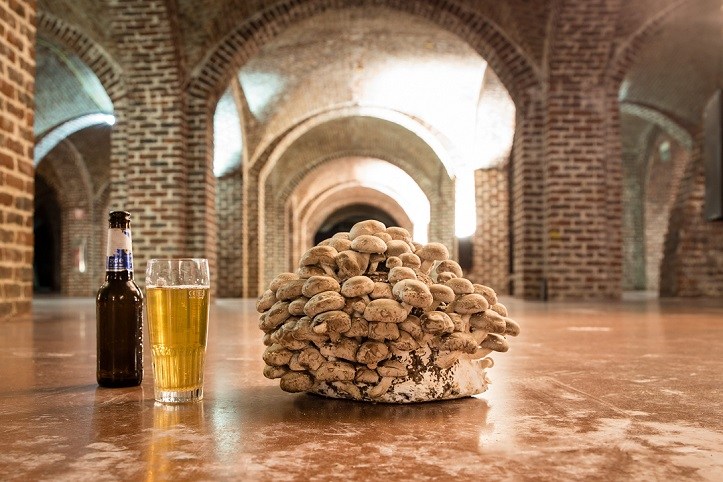In his entrepreneurship bestseller, From zero to one, Paypal founder Peter Thiel teaches that innovation is at the heart of any start-up’s competitive advantage.
Fair enough, but some companies want more. Let’s do a little quiz. What do these brands have in common? Gimber, Kazidomi, Yugen, Nona, FrOui, Kriket, Beescoop, EnVie, Lili Bulk, Ritchie, efarmz, Yuma, Ferm, Pots de l’îlot, Vega fric, Brewksel, Coup d’barre, Pa’lais, Cutie-pie, Shake eat, Simone a soif, Beerfood and Le Champignon de Bruxelles. Yes, they all are Belgian food start-ups, but there is more: their founders all aim to have an impact.
Together with fashion, food is considered by would-be entrepreneurs as a sector to change in the way we produce, transform and consume goods and services. All the start-ups above want to change the world in some way. They propose food that is either healthier, more local, more socially responsible or more environmentally sound.
“There is a perfect storm in Belgium,” according to David Mellett, CEO of Beefounders, an ‘accelerators studio,’ matching up investors and impact startups. The stars are aligned for something big to happen in the food sector. First, there is a demand from a growing number of people to ‘consume differently’ – think organic, vegan, local, seasonal or zero-waste. Second, large producers find it difficult to adapt their supply chains; small is beautiful and big names are keen to partner with ambitious start-ups. Third, Belgians love good food and have a high standard of living. Finally, more and more young Belgians want to become entrepreneurs, Mellett explains. Market trends and local specificities may have made Belgium the perfect place to launch a food start-up.
Going for gold
According to a European-wide poll on food safety in the EU in April 2019, Europeans are most concerned about “antibiotics, hormones and steroids in meat, pesticides, environmental pollutants, and food additives”. Healthy food is a “megatrend”, confirms Michel de Kemmeter, an expert in economic transition at the Vrije Universiteit Brussel (VUB) Vesalius College. Consumers are tired of junk food and food scandals. Food is seen as a partial solution to modern plagues such as climate change, chronic diseases and pandemics, soil and water pollution, animal abuse and forced labour.
Hence the steady growth in food entrepreneurs aiming to make a difference. “Ninety percent of my customers are vegetarian or vegan,” says Sara Dirkx, CEO of the Brussels Food Business Center (BFBC), a co-kitchen space and food startup incubator. “The trend has been growing for the last two years.”

Sara Dirkx, CEO of the Brussels Food Business Center, a food start-up incubator.
“Lots of young people want to have a positive impact when they launch their startup,” says Virginie Robe, project manager at Start.LAB, an incubator at Université Libre de Bruxelles (ULB), 15% of whose startups are in the food sector. “Boosting the local economy through short supply chains is an option for food startups.” More than a third of the 56 members of CircleMade, a network created by the Be Circular support scheme in Brussels, are in the food sector.
“Food is tangible and it is largely low tech,” Mellett explains. Hence there is a low entry barrier. Food is one of the easiest ways to start an impact business. Yet Joséphine Henrion, head of food and consumption at the regional environment ministry in Brussels, sounds a note of caution: “Food is a theme people think they know well because it is part of their daily lives. But as a job, it is very different. The image of sustainable food is far too romantic. It looks more accessible, but it is just as technical as any other business.” A lot of would-be entrepreneurs forget the fundamentals: a food start-up is first and foremost a business. In other words, you need to sell.
New business models
Start-ups would do well to remember that they need to compete with established brands. But large retailers have also embraced the new consumption trends. And they need the innovation that smaller, more agile players can bring. “The start-ups can invent new ways of sourcing food,” says Mellett. “They can even create change in regulations.”
Carrefour Belgium changed its supplier rules to enable tight partnerships with 800 local producers. The latter no longer need to be able to supply all Carrefour supermarkets but only up to ten local outlets. Delhaize is testing food deliveries with Urbike, a cargo-bike company to its ‘Fresh Atelier’ shops in the centre of Brussels. Colruyt recently became a minority shareholder of Kriket, a Flemish start-up that makes energy bars containing crickets. The Flemish supermarket brand has also partnered with frozen potatoes giant McCain in EnVie, a social enterprise project which makes soups from unsold vegetables on Belgian farms.

EnVie is one of many recent Belgian start-ups in the food sector. It makes soups from unsold vegetables by farms.
Food start-ups are attractive because they embrace new business models. Morgane Vouche, from Réseau Entreprendre Bruxelles, says one-third of the companies it has coached are from the food sector. New business models are following on the heels of the sustainable food trend, she adds. Think Gin-in-the-box, Our daily bottle and Vin du mois, for example, which sell drinks by post through a subscription.
Happy hour Market sells surplus food from supermarkets through an e-shop. Too Good to Go is an app to reduce food waste from shops. Lili Bulk relies on reverse logistics to sell glass containers of dry food. Mon cafetier rents out coffee machines and sells organic Fairtrade coffee by subscription. Beescoop is a cooperative supermarket owned by its members. Eats and Wolf are food courts in Brussels that each house more than a dozen street food restaurants in a single place. There are countless innovations out there, but are people buying?
Scaling up
“Belgians like quality,” De Kemmeter says. “It’s a premium market. On top of that, the country is small and highly meshed. It is a perfect test market.” Maxime Willems, CEO of Proef, a product development laboratory near Gent, elaborates: “Belgium is not an easy market, but Belgians dare to try new things: if you want to test a product, launch it in Belgium.” In short, Belgians like novelty and can afford it.
Willems points out that new hotels, bars and restaurants are also constantly in search of new products. The brand new Serra food hall on the ground floor of the Indigo hotel, for example, has partnered with the Brussels Beer Project and Nona non-alcoholic gin to offer innovative drinks. “Belgian entrepreneurs are great at revisiting existing concepts, maybe even more so than creating new ones,” Willems explains, citing Ferm, one of his former clients, which makes aromatised kombucha drinks.
He also points to the elephant in the room by cautioning, “we have a problem to scale up in Belgium.” Mellett explains: “Belgium is a risk-averse country. Public support is an issue. Regulations, subsidies and the like are not part of the perfect storm. As a consequence, many brands close down after just three years,” Willems says.
There are solutions out there, such as crowdfunding, although this is used more for reputation building than core financing. Start-ups can also rent an incubator space to produce and test their products, and get coaching from the likes of Proef or BFBC. Mellett advocates a combination of subsidies and coaching: “Subsidies [alone] can be dangerous. You should not over-rely on them, otherwise you are not resilient.” That is perhaps why this year, for the first time, all Be Circular applicants are being offered a business coaching session. The goal is to make sure that the projects – and ultimately the jobs created - have a chance to last. If passion is indispensable, it is not sufficient.
Raison d'être
There was a breakthrough in Belgium before the pandemic started: for the first time ever, more than 100,000 companies were created in a single year. “It is cool and trendy to launch your own business,” explained Danny Van Assche, Director general of UNIZO, the Flemish federation of independent entrepreneurs, in the national finance newspaper l’Echo. In the food sector, the typical entrepreneur is either a young graduate brimming with ethical values, or a Baby Boomer in a midlife crisis. Both want to have a business with meaning.
For example, Aurélie Beya founded Shake Eat, a catering company that uses surplus food from organic grocers, after a short career working for companies that “don’t care about humanity”. She explains: “These were not the values I got from my parents. As a teenager, I wanted to do something with degrowth. It stayed with me.” Catherine Piette, a food coach and infopreneur, launched her own business when she was in her late 40s, after a career at the Belgian broadcaster RTBF. "I realised my job no longer had any meaning for me. So I decided to create my own meaning,” she says.
“Eighty percent of would-be entrepreneurs are dreamers,” Dirkx from the BFBC says. “Their businesses will never materialise. Half of the remainder will start and the other half will have to restart – perhaps several times – to make it work.” Henrion from the environment ministry adds: “We see a lot of citizens who eat sustainably and want to have an impact. But they totally underestimate dealing with issues of management, staff, administration, accounting, marketing and countless hours of physical labour, never mind much less money than a normal salary. It’s very tough.”
So there is a perfect storm, but it is not an easy ride. If food start-ups have to abide by the same rules as any start-up, they are also imbued with a magic that cannot be taught: passion. And Belgium and its people are undoubtedly passionate about food.
By Hughes Belin

